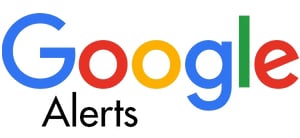Your company’s website is one of the most important pieces of your Business Plan. With more and more news of “The Retail Apocalypse” hitting brick and mortar stores like Sears, J.C. Penney, and Victoria’s Secret; it’s important to ensure your website is bringing you the business you need while simultaneously standing out from the competition. However, like any expensive or useful asset, you are in danger of having your website stolen if due diligence is not paid to preventing a “Copied Website”.
“Copied Website” is a term that is not simply referring to the idea that another competitor steals similar ideas or marketing strategies from your website and uses them on their own. It is much more complex than that. It is when a copy of your website is created in a manner that looks like it is your business’s website. Most concerning is that your customers will not even be able to tell the difference. When purchases are made on this “copied” site, the monies go straight into a criminal’s pocket, while the customer, in most cases, receives nothing. The added danger to this is that client with incorrectly think it was your legitimate business that ripped them off. Frustrated and unaware that they have been “had”, the customer could potentially write negative reviews for your business on Google, Yahoo, Yelp, or Bing. Unfortunately, there is little in the world of e-commerce that can dry up business faster than a series of negative reviews.
If you’ve created an amazing and prosperous website, there is a good chance it has gained the attention of thieves and hackers. Let’s look at how you can protect it.
[Related Reading: Starting Your Website]
How do I find out if my website has been copied?
My research on this subject has uncovered some great ways to stay one step ahead of the criminals as well as help determine if your website has already been copied.
First, I recommend reading the article, 6 Sneaky Ways Your Competitors Are Keeping Ahead of You. The author writes, “One of the simplest ways competitors can try to sneak ahead of your success is by tracking and replicating your content strategy.”
Second, take a look at Google Alerts and Copyscape. They can also be great resources. Google Alerts can be utilized to ensure that no other sites are using your business’s name. You can also set it up to notify you when specific keywords are used. Copyscape allows a business owner to see if other websites are plagiarizing their website’s content in a text format. This is great for checking blog articles for example, because no one wants their creative work copied and pasted.

Google Alerts is a content change detection and notification service, offered by the search engine company Google. The service sends emails to the user when it finds new results—such as web pages, newspaper articles, blogs, or scientific research—that match the user’s search term. [Google Alerts Wiki]

Copyscape is an online plagiarism detection service that checks whether similar text content appears elsewhere on the web. It was launched in 2004 by Indigo Stream Technologies, Ltd. [Copyscape Wiki]
I found someone copying my website, now what?
So, you did some research and found that someone is copying your website. Gather up all the evidence. You will need it to make a case for the removal of the copied work. Since this process may even include reaching out to an attorney for legal assistance, you will need to have your examples well organized. Make sure you include screenshots of the replica website.
If you’re unfamiliar with how to take screen shots, access these links for a quick how to for Mac and PC.
Another great tool that assists in gathering screenshots is the Wayback Machine. This site has been gathering content for it archive since 1996! Similar to an old microfiche, the site has records of what your website used to look like, even if it had previous owners.
The next step in the gathering of evidence is to find out who owns the website and attempt to contact them directly. The best way to find this information is by doing a “WHOIS” search. You can easily do a google search for WHOIS and find many sites that are able to assist with the process. Here are a couple that I think are the best:

ICANN’s WHOIS provides you the ability to look up generic domains in order to find out the registered domain holder.

UltraTools provides free Domain, WHOIS, and IP Lookup tools. They do require you to sign up for a free account.
WHOIS sites will provide you information you need to get in contact with the owner. For example, their name, phone number and email address. However, there may be instances in which some information is not available or redacted for privacy. If you find yourself in this situation, check the WHOIS records for the “Server Host” and reach out to them directly. The Server Host is the company that provides the virtual space for the website to be displayed. Think of a Server Host as a Landlord renting out apartments. If you’re able to locate and contact the Server Host, they may require that you provide them with evidence of a Copycat Website in order to give you any information. If your story and supporting evidence is convincing, in many cases your request will be accommodated.
If you can successfully contact the owner of the Copycat Website, and they do not willingly remove their site, the next step would be to submit a DCMA Takedown Form. Be advised that simply filling out the form does not ensure that the take down will take place.
[Related Reading: Images or photos on your website? Avoid a lawsuit!]
Time to take Legal Action
If your attempts to have the site removed have been fruitless or if the process itself seems too intimidating to undertake on your own, it’s time to call an Attorney. Be sure to look for Attorney who has experience in dealing with internet law, business transactions and intellectual property.
L4SB has the experience that matters most when it comes to Website Copycats. We can guide you through the research that is required to build your case. We can determine the severity of your issue, assist with a DCMA Takedown and investigate as to whether Copyright Infringement has occurred. We will take the appropriate legal course of actions to help protect your business from Copycat Websites
Contact us today to set up a consultation with an Attorney regarding your case.

